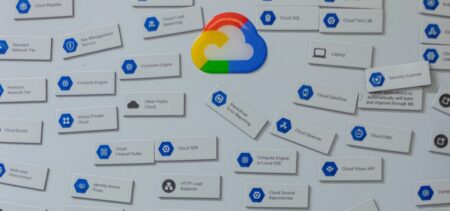ChatGPT’s popularity has brought to attention the incredible evolution of chatbots. But this evolution also means we are using them on an ever larger scale in content creation. Naturally, a question arises: Do search engines penalize AI-generated content?
What Is AI-Generated Content?
AI-generated content refers to content that is created or generated using artificial intelligence (AI) techniques. It involves the use of algorithms and machine learning models to produce text, images, videos, audio, and other types of content. AI models, including language models like GPT-3, can generate human-like text by being trained on vast amounts of data and learning patterns and structures within the data.
AI-generated content can be used in various applications, including:
Text generation
AI models can generate written content, such as news articles, blog posts, product descriptions, social media posts, and more. These models can mimic the style, tone, and language of human authors.
Image and video generation
AI models can generate realistic images or videos based on certain inputs or criteria. For example, they can create new faces, landscapes, artwork, or even deepfake videos that manipulate or merge existing visual content.
Content summarization
AI models can analyze and summarize large amounts of text or data, condensing it into more concise and digestible forms. This can be useful for creating executive summaries, news digests, or abstracts.
Chatbots and virtual assistants
AI-powered chatbots and virtual assistants can generate conversational responses based on user queries or interact with users in a natural language interface. They can provide information, answer questions, and perform tasks based on programmed algorithms.
Can Search Engines Penalize Your Website for Using AI-Generated Content?
Search engine algorithms may potentially penalize AI-generated content if it exhibits certain characteristics or practices that are against their guidelines and best practices.
Here are some reasons why search engines could penalize AI-generated content:
Duplicate or plagiarized content
If AI-generated content copies or duplicates existing content without providing any added value or unique perspective, search engines may consider it low-quality and penalize it. Search engines prioritize original and unique content that benefits users.
Keyword stuffing or spammy practices
AI-generated content that excessively uses keywords, includes irrelevant or repetitive information or engages in other spammy practices to manipulate search rankings can be penalized. Search engines aim to provide users with high-quality and relevant content, and such practices are considered manipulative.
Poor user experience
If AI-generated content is difficult to read, lacks coherence, or fails to address users’ queries effectively, it may lead to a poor user experience. Search engines prioritize content that provides value and meets users’ needs. Content that frustrates or confuses users may be penalized.
Lack of credibility or authority
If AI-generated content lacks credibility, sources, or proper attribution, it may be viewed as unreliable or untrustworthy. Search engines aim to present trustworthy information to users, so content lacking credibility may be penalized.
Violation of search engine guidelines
Search engines have specific guidelines and policies that websites and content creators must adhere to. If AI-generated content violates these guidelines, such as engaging in deceptive practices or spamming, then search engines may penalize it.
Google Says AI Content Is Not Against Its Guidelines
In a recent blog post, Google confirmed that AI-generated content is not against its search engine guidelines. The search engine giant has also released its guidance for AI-generated content. Google clarified its intention to prioritize high-quality content regardless of the generation method and emphasized that generating content solely to manipulate search rankings through automation violates its spam policies. However, Google acknowledged that AI-generated content can still contribute to the creation of valuable and quality content that assists users.
“When it comes to automatically generated content, our guidance has been consistent for years. Using automation – including AI – to generate content with the primary purpose of manipulating ranking in search results is a violation of our spam policies.
This said it’s important to recognize that not all use of automation, including AI generation, is spam. Automation has long been used to generate helpful content, such as sports scores, weather forecasts, and transcripts. AI has the ability to power new levels of expression and creativity, and to serve as a critical tool to help people create great content for the web. This is in line with how we’ve always thought about empowering people with new technologies,” the blog post said.
“Appropriate use of AI or automation is not against our guidelines. This means that it is not used to generate content primarily to manipulate search rankings, which is against our spam policies,” it added.
Conclusion
It’s important to note that, while AI-generated content can be highly sophisticated and human-like, it is still generated by algorithms and lacks the true understanding and creative intuition that humans possess. Care should be taken to ensure that AI-generated content is accurate, ethical, and aligned with legal and societal guidelines. This article is written based on information provided by search engines up to June 2023. It is important to note that search engine algorithms and policies can change over time, so it’s always a good idea to refer directly to the latest guidelines released by search engines.














































